Nigerians' double blow: Currency woes and Covid-19
- Published

Entrepreneurs in oil-rich Nigeria are finding it difficult to weather the economic fallout of the deadly coronavirus pandemic and a plummeting currency.
Amid the lockdown a dispute between Russia and Saudi Arabia sent the price of the fossil fuel tumbling, dragging down the value of the Nigerian currency with it.
With the naira still volatile and a partial lockdown still in place, three business owners in the commercial hub of Lagos explain how they are coping.

Marifa Witte: McKindergarten
Opened a private pre-school two months before Lagos went into lockdown. Employs 10 staff.
Our first priority was keeping the children safe"

"We actually closed our doors before the government shut the country. Our first priority was keeping the children safe.
"At the time we had only three children, but it started off very well considering that we opened in the middle of a school year. We were scouting for parents.
"When the lockdown happened I started panicking, because just before the we had already started seeing the devaluation of the naira.
"Today everyone is projecting that it will go up to 500 naira to one US dollar. It would be a disaster - I would need more naira to pay expatriate staff in my establishment.
"Being a new school, we only have a certain amount of savings to float us for the first and second year until the school becomes successful.

McKindergarten's owner says four more children are due to join in September
"At the moment our staff - security, cleaners, nannies and administrative staff - are all on full salary. I've told them I will cut their salaries by 50% to prepare for the worst, but I expect to cut salaries by around 30%.
"There were four more people - a teacher, teaching assistants and a receptionist - whose three-month probation period ended in April. We told them that we would come back to them when the school resumes. If they do, I will have to renegotiate salaries because I can no longer pay them what we agreed.
"All the parents who have registered for September still aim to come - that's four more children. But my biggest fear is that we may not open then.
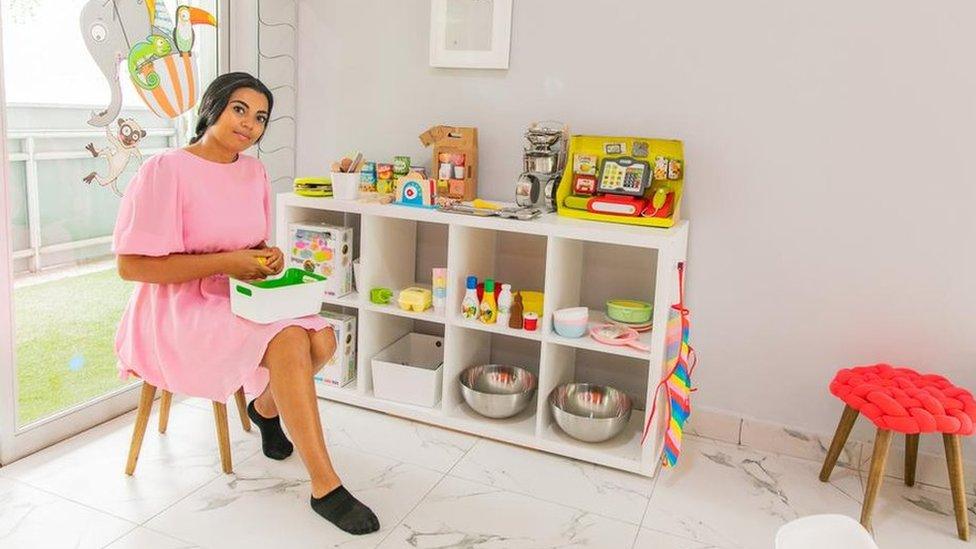
Many business owners, including Marifa Witte, say they have tough choices ahead
"I've thought about closing the school down. If the pandemic goes on for another year the school will not be able to survive. The rent is very expensive here, on one of the prime commercial streets in Lagos. I would not be able to make my rent in the third year if we don't open in September.
"Today, yes the virus is still here, yes everyone is still scared, but people are a little bit more relaxed. The economy is my biggest fear in Nigeria."

Papa Omotayo: MOE+ and A Whitespace Creative Agency
Twenty-five full-time staff working from home. Architectural and visual arts projects continue with fewer-than-usual construction workers on site.
Everybody's a little bit sick and tired of zoom calls and team calls. We're definitely not as efficient"

"The response from my clients has been to put a lot of things on hold.
"Everybody's trying to figure out how it's going to affect them as individuals and organisations. Hopefully, the majority of projects will come back.
"I think that the uncertainty is going to last for quite a while. I'm definitely feeling the difficulties.
"[If] you look at the cost of things now compared to months ago it's in some cases almost double, so that hardship is going to be felt dramatically.
"People's earnings are going down because a lot of businesses are having to scale back because of the pandemic so it's tough times.
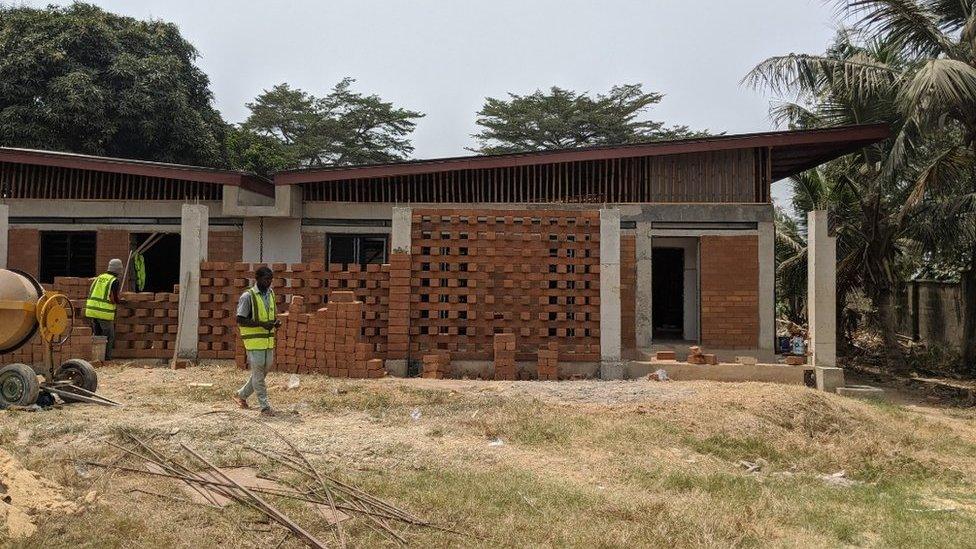
Construction work continues but with fewer people on site in accordance with social-distancing rules
"We made the conscious decision not to get rid of staff [to] keep a great team.
"But we have to discuss with staff how we can look at off-setting certain expenses and moving them to a later period in the year.
"I would say we're operating [at] 50% productivity at best, but I think that's also to do with the nature of the type of work that we do.
"You can't just walk over to someone's desk to check up on what's going on.
"Everybody's a little bit sick and tired of zoom calls and team calls. We're definitely not as efficient."

Ndidi Nwuneli: AACE Foods
Employs 80 staff. Processes and distributes spices, seasonings and flour.
Nigerians are embracing locally sourced products"

"My food business is classed as essential, so when lockdown happened we sent letters of exemption to our staff so they could get to work and transport their products.
"But I have to tell you that it wasn't easy. Many of them faced harassment by police for the first two days, which we reported to the government authorities.
"Some of our staff were even attacked - that was a challenge. The government was very responsive and the challenges eased over time.
"To ensure social distancing, we had to reduce the number of people working at any given time. So we split everyone into A and B teams - who worked one week on, one week off.
"We had to reduce capacity to about 50%, but also our output, which meant that we could not enjoy the sales.

You may also be interested in:
Five things you need to succeed in Africa

"Many of restaurants reduced or shut down operations during the lockdown, so obviously there was reduced demand.
"Curfews also made it difficult for staff to work full days.
"Staff members have been on full salary, and we told them we would review the situation as time goes by, but it never got to that.
"Now we're back in full, operational mode with a new layout to ensure social distancing. Customers are also operational and demand has picked back up.
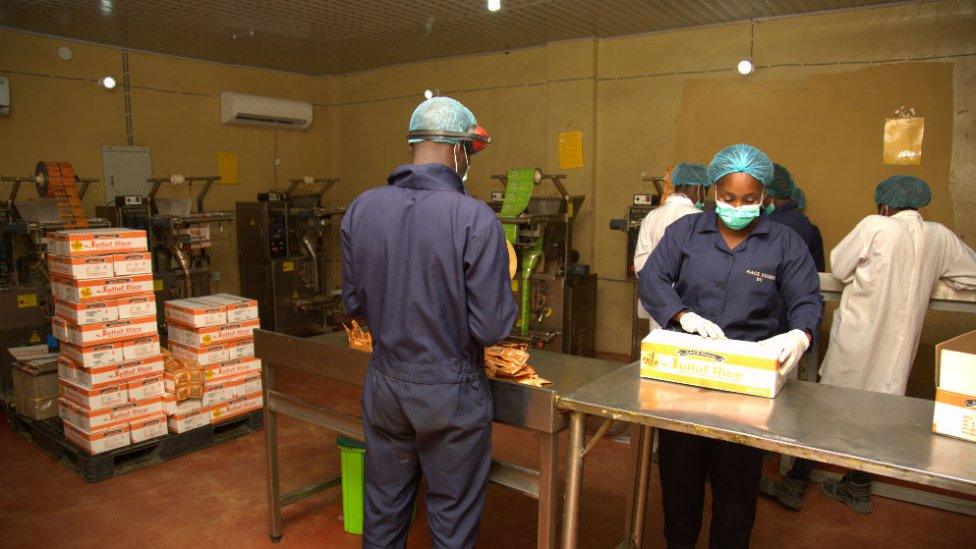
Ndidi Nwuneli says staff work alternate weeks but still receive full pay
"We are seeing an upsurge in retail because the oil shock and Covid-19 have restricted imports, so Nigerians are embracing locally sourced products.
"We're well-aware this is a 12- to 18-month battle and many speculate that Nigeria is about to really get the big blow of coronavirus.
"We're thinking, 'How can we make sure we survive and thrive during this period?'
"It means thinking through how we can be more cost-effective and innovative, and also the way we engage with our customers."
- Published29 April 2020
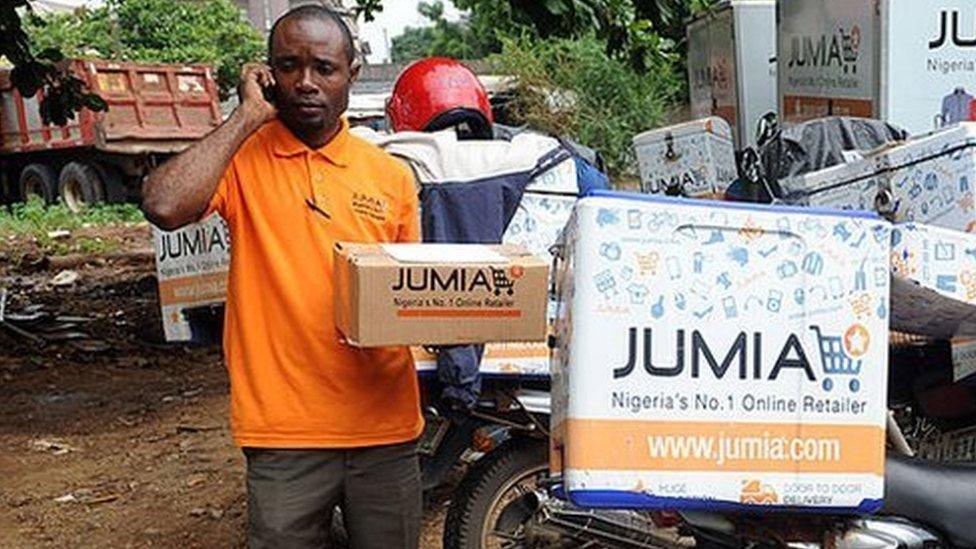
- Published6 January 2020
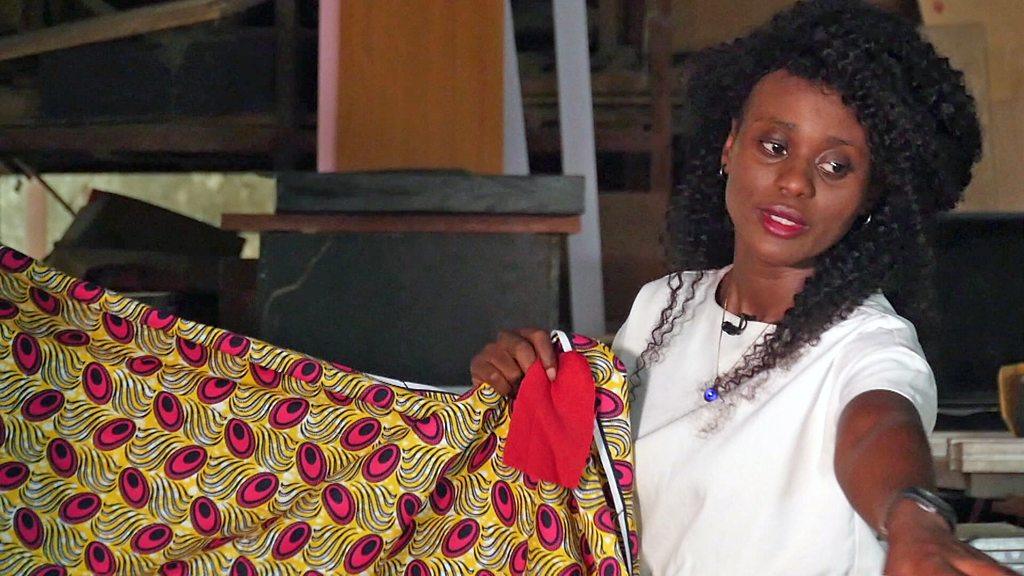
- Published21 July 2020
